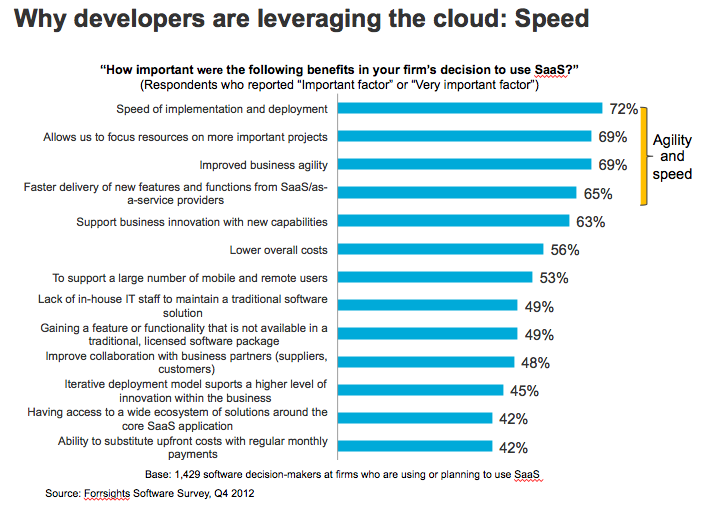
Enterprise IT keeps trying to shove the public cloud genie back into a private cloud bottle, but the majority of developers are having none of that, according to Forrester principal analyst James Staten (@staten7), speaking at the Open Business Conference (OSBC) on Tuesday in San Francisco. Interestingly, these cloud-savvy developers aren’t newbie troublemakers just getting started in enterprise IT, but instead skew older and more experienced. Perhaps with Twisted Sister cranking on their Walkmans, this rising breed of middle-aged cloud developer isn’t “gonna take it anymore.”
Which, of course, is exactly how open source made its way in the enterprise.
Open Source: Not So Young But Very Restless
Back in 2002, Boston Consulting Group surveyed (PDF) the open-source developer community to get a feel for the demographics of the movement. While early open-source development was thought to be marshalled by anarchists and free code-loving hippies, BCG’s study revealed that the open-source community was actually comprised of experience IT professionals with an average of 11 years of programming experience.
And while the open source ranks weren’t filled with Baby Boomers, they also weren’t being pushed by Generation Y. The average age was 30 years old. While not exactly middle aged, it skewed much older than expected.
This shouldn’t have been surprising. Often, those who have the most value to contribute are more experienced programmers. In addition, such programmers have also been working in enterprise IT long enough to recognize a better, more efficient way of developing software, and to have the job security needed to take a risk on coloring outside the lines of enterprise IT policies.
Cloud As An Antidote To Corporate Bureaucracy
It’s therefore not surprising to see cloud computing also driven by experienced developers, rather than newly minted graduates. According to Forrester’s Forrsights Developer Survey, Q1 2013, 71% of cloud developers have at least six years of programming experience, and some 11% have been writing code for over 20 years. These aren’t novices trying the cloud because it’s “cool.”
Indeed, delving deeper into Forrester’s data, the primary reason developers turn to the cloud is speed of development:

In other words, as with open source, these developers can’t be bothered with corporate bureaucracy. In an earlier Forrester survey, developers said the primary benefit of the cloud is that it’s the “Fastest way for me to get my project done and deployed.” This calls to mind Redmonk analyst Stephen O’Grady’s assertion that “Convenience trumps just about everything” when it comes to cloud adoption.
A Race To Capture Middle-Aged Hearts And Minds
Amazon was the first to spot this market, and is now the preferred Infrastructure-as-a-Service (IaaS) offering for 71% of developers, according to Forrester, with Microsoft Azure (25%) and Google (23%) playing catch-up. Cloud developers overwhelmingly want IaaS because they want “deep platform access” to things like app servers, web servers, and databases, as Staten noted in his OSBC presentation.
Again, cloud developers are not neophytes. They’re serious developers who understand core IT infrastructure but want the freedom to get work done without waiting on corporate procurement or legal policies to catch up.
As such, the IaaS platform that best serves this need will win.
Image courtesy of Jørund F Pedersen, licensed under Creative Commons Attribution-Share Alike 3.0 Unported license.















